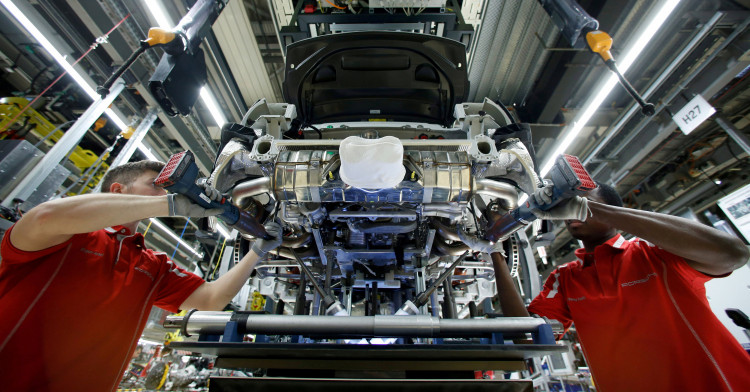Germany carmaker Porsche AG will continue producing vehicles for China - its top market.
China accounted for 33%, or 88,968 new vehicles, of Porsche's world sales of 272,162 units in 2019. It has been ruled out as the site for a Porsche manufacturing facility for the time being. Porsche's China sales in 2020 were up 3% year-on-year.
In contrast, Porsche delivered 80,892 vehicles in Europe and 69,629 in the United States. China was also the only major car market where Porsche reported growth during the COVID-19 year of 2020.
Despite these records, Porsche CEO Oliver Blume, said China did not generate sufficient volumes to justify establishing a local production facility. There's also the unquantifiable value of brand prestige to consider.
"It is a quality and a premium argument still to produce from Europe for China," said Blume to Financial Times. "Today it doesn't make any sense (to move production to China)."
He said making Porsches in Germany allowed the company to maintain more stable prices while rivals with production facilities in China had to offer large discounts to drive sales.
The downside is that because the premium Porsche market was developing much quicker than expected in China, Porsche wasn't able to react quickly enough because 100% of its production comes from Europe.
Blume also said it's worth absorbing higher costs of production in Germany to protect the cachet of the "Made in Germany" brand.
"That's also the feedback we got from our dealerships and from our customers," he said in explaining this decision.
Blume said a precedent to not make in China was set when Porsche decided to retain production of its electric vehicles in Germany and not move it to neighboring Slovakia, where production costs are much lower.
This decision affected the Porsche Taycan, the company's first first series production EV, which is produced at Zuffenhausen, a northern district of Stuttgart.
Blume said the decision to retain production of the Porsche Taycan in Germany sent a "strong signal" to customers the EV, which sold 20,000 units in 2020, was "engineered and made in Germany," thereby protecting the cachet.
On the other hand, Blume said market forces might change the group's global footprint in the future and open the door to China production.
"In 10 years, I don't know," said Blume. "It depends a lot on how volume develops and also the regulations in each country."






